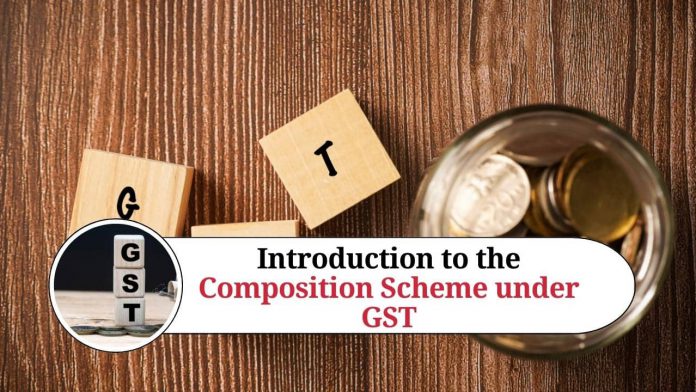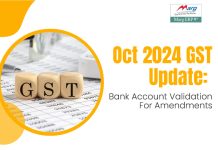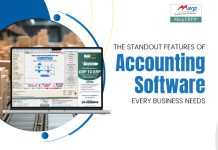Introduction
Composition Scheme under the Goods and Services Tax (GST) is a scheme that is designed to simplify the tax compliance process for small businesses and reduce their tax burden. This scheme is particularly beneficial for businesses with a low annual turnover, as it allows them to pay taxes at a lower rate and with less complexity. In this article, we will provide an in-depth overview of the Composition Scheme and its key features.
Eligibility Criteria for the Composition Scheme
To be eligible for the Composition Scheme, a business must meet certain criteria:
- The business must have a turnover of up to Rs. 1.5 crore in the previous financial year.
- The business must only engage in the supply of goods, not services.
- The business must not be engaged in the manufacture of goods, with a few exceptions.
- The business must not be engaged in the inter-state supply of goods.
Benefits of Opting for the Composition Scheme
The Composition Scheme offers several benefits to eligible businesses, including:
- Lower tax rates: Under the Composition Scheme, businesses are required to pay taxes at a lower rate, which is significantly lower than the standard GST rate.
- Simplified compliance process: The Composition Scheme simplifies the tax compliance process for small businesses, reducing the administrative burden and enabling them to focus on their core business activities.
- Reduced compliance costs: The simplified compliance process under the Composition Scheme reduces the costs associated with GST compliance, making it more affordable for small businesses.
Requirements for Registration under the Composition Scheme
To register under the Composition Scheme, a business must:
- File an application for registration through the GST portal.
- Provide the required information and documents, such as PAN, GSTIN, and bank details.
- Pay the applicable taxes and fees.
Filing Returns under the Composition Scheme
Under the Composition Scheme, businesses are required to file quarterly returns instead of monthly returns. The returns must be filed through the GST portal and must include details of the sales and purchases made during the quarter, along with the tax paid.
Limitations and Restrictions
The Composition Scheme comes with certain limitations and restrictions, including:
- Limited to supplies of goods: The Composition Scheme is only available for businesses that engage in the supply of goods. Businesses that engage in the supply of services are not eligible for this scheme.
- Limited to certain types of goods: The Composition Scheme is only available for businesses that supply certain types of goods, such as food items, handicrafts, and others.
- No inter-state supplies allowed: Businesses registered under the Composition Scheme are not allowed to make inter-state supplies of goods.
Conclusion
In conclusion, the Composition Scheme under GST provides a simplified and more affordable tax compliance solution for small businesses engaged in the supply of goods. By opting for this scheme, businesses can reduce their tax burden and focus on their core business activities while still fulfilling their tax obligations.
Read more useful content:
Frequently Asked Questions (FAQs)
Q1. What is the Composition Scheme under GST?
A: The Composition Scheme under the Goods and Services Tax (GST) is a scheme that is designed to simplify the tax compliance process for small businesses and reduce their tax burden. This scheme allows businesses with a low annual turnover to pay taxes at a lower rate and with less complexity.
Q2. Who is eligible for the Composition Scheme under GST?
A: To be eligible for the Composition Scheme, a business must have a turnover of up to Rs. 1.5 crore in the previous financial year, must only engage in the supply of goods, not services, must not be engaged in the manufacture of goods (with a few exceptions), and must not be engaged in the inter-state supply of goods.
Q3. What are the benefits of opting for the Composition Scheme under GST?
A: The Composition Scheme offers several benefits to eligible businesses, including lower tax rates, a simplified compliance process, and reduced compliance costs.
Q4. What is the process for registering under the Composition Scheme under GST?
A: To register under the Composition Scheme, a business must file an application for registration through the GST portal, provide the required information and documents, such as a PAN, GSTIN, and bank details, and pay the applicable taxes and fees.
Q5. How often are returns required to be filed under the Composition Scheme under GST?
A: Under the Composition Scheme, businesses are required to file quarterly returns instead of monthly returns. The returns must be filed through the GST portal and must include details of the sales and purchases made during the quarter, along with the tax paid.
Q6. What are the limitations and restrictions of the Composition Scheme under GST?
A: The Composition Scheme has certain limitations and restrictions, including being limited to supplies of goods, being limited to certain types of goods, and not allowing inter-state supplies.
Q7. Can businesses engaged in the supply of services opt for the Composition Scheme under GST?
A: No, businesses engaged in the supply of services are not eligible for the Composition Scheme.
Q8. Can businesses registered under the Composition Scheme make inter-state supplies of goods?
A: No, businesses registered under the Composition Scheme are not allowed to make inter-state supplies of goods.
Q9. Can a business change from the Composition Scheme to the regular GST scheme?
A: Yes, a business can change from the Composition Scheme to the regular GST scheme if it exceeds the turnover limit or if it engages in the manufacture of goods, or the supply of services. The change must be made before the end of the financial year.




















